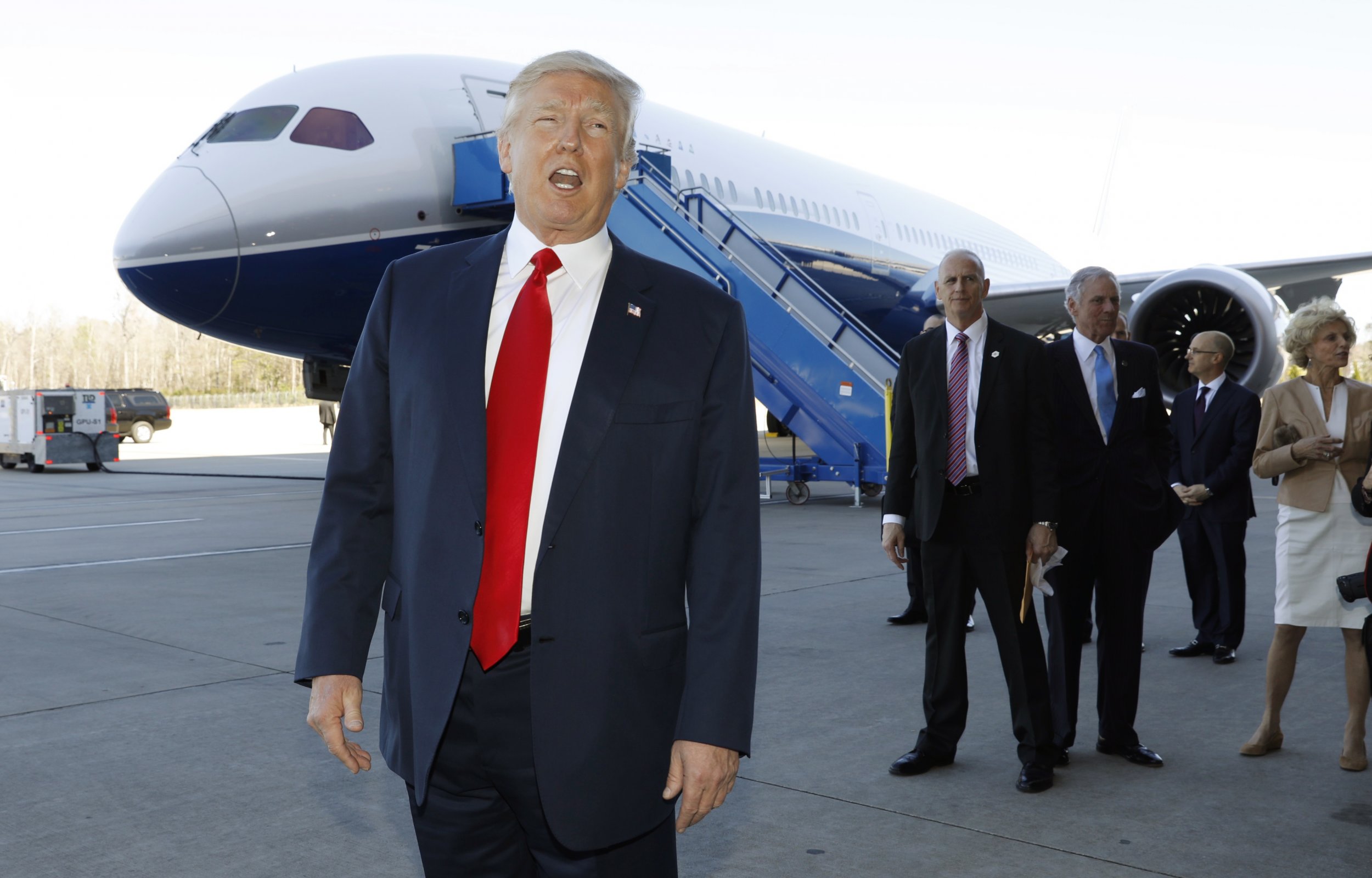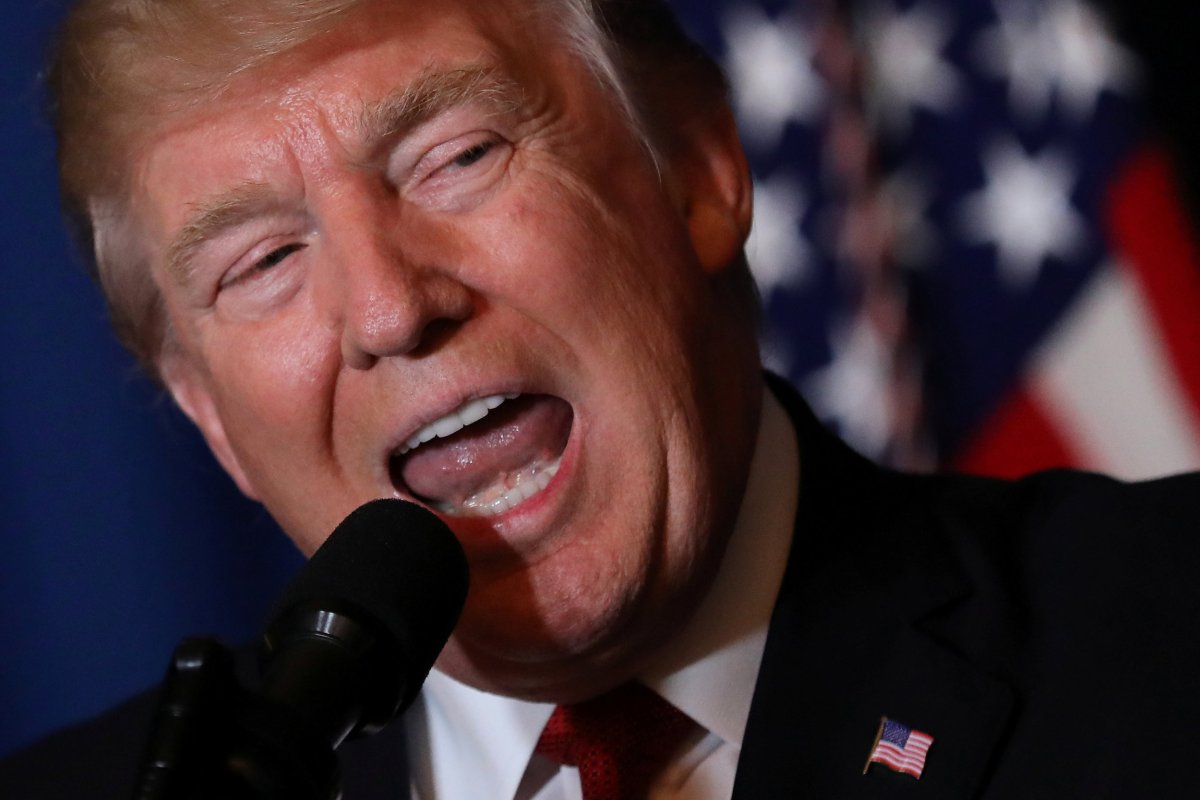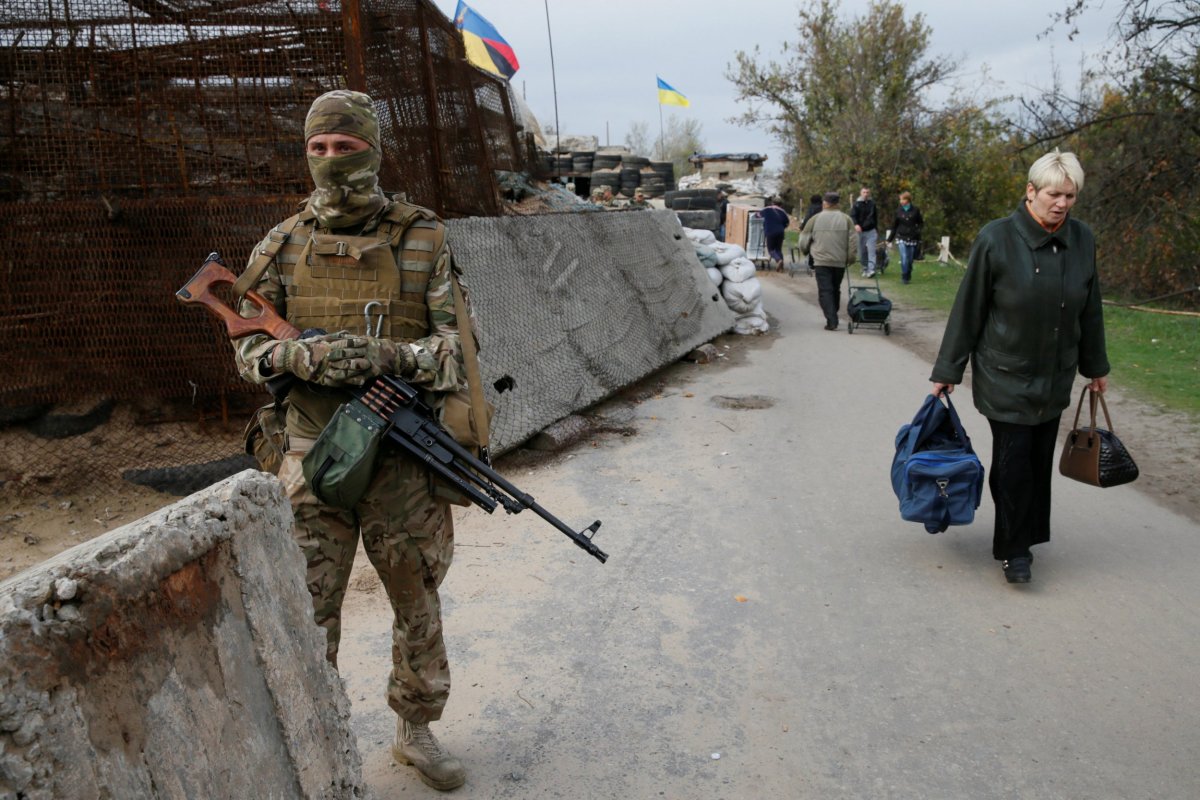
As Donald Trump embarks on his first foreign tour, taking in some of the world's most troubled hotspots, his administration must be hoping that the president's domestic fires — Michael Flynn, Russia and leaking allegations — burn out in his absence.
Trump is on the start of a complex tour that includes the ancient capitals of Islam, Judaism and Christianity, culminating with the NATO and G7 summits next week where international leaders will urge the president to move further away from the "America First" rhetoric of the campaign trail last year.
The trip will take in Saudi Arabia, Israel, Italy, The Vatican and Brussels in an attempt by the Trump team to intensify a campaign of diplomatic reassurance. Four months into taking office, Trump's international approach remains largely undefined. He promised "a new foreign policy direction" in what was seen, in some quarters, as the biggest shake-up of U.S. foreign relations since 1945.
It is self-evident that the new administration will challenge some key elements of post-war orthodoxy pursued, in different ways, by Democratic and Republican presidents. However, Trump's presidency has so far been clearer on rolling-back campaign pledges than fulfilling them.
In Syria, where Trump's "America First" rhetoric indicated that he would not seek to deepen U.S. involvement in the country, the president took many by surprise following a poison gas attack on a rebel-held town — allegedly at the hands of the Damascus regime — when he authorized U.S. missile strikes targeting the Syrian government's Shayrat air base. U.S. ambassador to the United Nations Nikki Haley has since asserted that the Trump administration is ready to take further military steps in the country if needed.
The unpredictability of Trump's presidency is making America's key allies nervous, made worse by the recent furor surrounding the president's disclosure of sensitive intelligence to Russian Foreign Minister Sergei Lavrov. The intelligence, which Israel reportedly shared with the U.S., will add extra spice to Trump's session with Israeli Prime Minister Benjamin Netanyahu given that the latter was not informed in advance of the president's decision to leak the information to Moscow.

Trump has inherited a host of foreign policy nightmares that will continue to haunt his administration: the outlook for the Israeli-Palestinian peace process is bleak, major offensives are still underway in Syria and Iraq against the Islamic State group, and, post-Brexit, the future of the EU is far from assured.
International political risks are now at their highest level since the end of the Cold War and other geopolitical fault lines that Trump must confront include tensions with China over the latter's territorial claims in the South China Sea and continuing instability in Afghanistan and Libya. Meanwhile, international terrorism remains a significant international concern more than a decade and a half after 9/11; unstable countries (including North Korea) have acquired nuclear weapons; and hostilities in Ukraine, and tensions over Syria, means that Washington's relations with Moscow are at a strained point which makes Trump's recent disclosure of intelligence all the more perplexing.
Some critics of ex-President Barack Obama, including Trump himself, see this troubled international picture as a result of weak leadership in Washington during the last administration. However, this is too simple.
While the U.S. remains the most powerful country in the world militarily, Washington is not an omnipotent hegemonic power, despite the Trump administration's rhetoric suggesting otherwise. This fact — unpalatable as it may be for Trump — has been evident throughout the post-Cold War period, from Somalia in 1993, Iraq and Afghanistan since 9/11, and, most recently, in Ukraine and Syria.

What this underlines is that, far from Trump's America First philosophy, Washington's international diplomatic success will depend upon greater cooperation with other states, both rivals and allies. This includes the EU to which Trump has become the first U.S. president to show outright public hostility given his call for more countries to follow the UK's lead in voting to leave the bloc.
In terms of this international cooperation agenda, a key uncertainty for Trump's presidency is the direction of bilateral relations with China which could suffer as a consequence of Trump's nativist outlook, or alternatively deepen the two superpowers' strategic partnership.
A question mark hangs over U.S.-China relations for the next four years: Trump's stance toward Beijing has undergone a seismic shift following his pivot to the ills of North Korea in his foreign policy. The president has acknowledged that China could potentially play a very constructive role in curbing Pyongyang's provocations, which could provoke his first foreign policy crisis.
Bilateral rivalry is possible if Beijing's military power continues to grow rapidly and the country embraces a more aggressive foreign policy toward its neighbors but bilateral cooperation is possible if the two powers can find ways to resolve harder power disagreements, such as South China Sea territorial claims, while cooperating on soft issues like climate change. As Trump is rapidly discovering, stable and trustworthy partnerships are the key to walking the tightrope of global diplomacy.
Andrew Hammond is an associate at LSE IDEAS at the London School of Economics.
Uncommon Knowledge
Newsweek is committed to challenging conventional wisdom and finding connections in the search for common ground.
Newsweek is committed to challenging conventional wisdom and finding connections in the search for common ground.
About the writer
To read how Newsweek uses AI as a newsroom tool, Click here.








